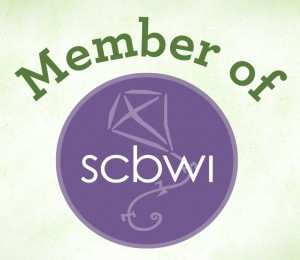True vs Right
I’ve been doing a lot of speaking at schools lately, talking about writing and being a writer. During these presentations, I try to get the kids talking as much as possible. My goal is to get them engaged and excited about writing and, hopefully, get them thinking about what they can write.
As part of that process, I ask a lot of questions that I never answer. Instead, I give the kids the space to come up with their own answers. It’s very much the same as what happens in my writing. I don’t try to answer things for kids. Instead, I just present the ideas for them to think about.
Their take on one of those ideas has really surprised me.
In Dragon Run, dragons are in charge of the world. In that world, once you turn 12-years old, you get Tested. The highest score possible on the test is rank 7, and the lowest is rank 1. If you’re rank 7, you’re considered to be the perfect person. You can do magic, and everyone loves you. Rank ones, on the other hand, are ostracized. Your rank is tattoo’ed onto the back of your neck, so once you get it, you have it for your whole life.
After explaining that to the kids, I ask them who would like a rank mark. Here’s the spiel:
Who out there would like a rank mark? Go ahead and look around you. Would you like to know exactly where you stand – to know who is better than you and who is worse? There’s no worrying about where you are in the world. If you’re a six, you’re a six. You’re set for life. If you’re a two… well, that would be bad. But at least you would know.
So how about it? Who wants a rank mark?
Any guesses as to how many kids choose to have a rank mark?
I’ve had 20-something presentations in the past couple months, and the results are almost always the same: about 50-75% of the kids want rank marks. There have been only two exceptions: in one school, none of the kids raised their hands, and in another all but three kids wanted the mark.
Teachers and parents have been uniformly horrified by their students’ answer. I see them shaking their heads in dismay, or staring open-mouthed at the kids. One even started to correct her students, but I stopped her.
I’ve spent a lot of time thinking about this – not so much about the answer the kids have given, but instead about both my reaction and the teachers’.
Clearly, there’s a huge disconnect here, and it’s one that we would not even have found out about if the students hadn’t felt safe to express themselves. I have no doubt that most of those disapproving adults did some serious talking the day after my presentation. That’s certainly understandable, but it may have made the problem worse.
Students like to give the right answer, regardless of whether or not it’s what they believe.
As educators, it’s important to find ways to get around that instinct. Sometimes, we need to tap into what the kids feel is “true” rather than what they think is “right.”
There are spaces where this happens naturally. Athletics is one great example. As a soccer coach, I’ve found that if I throw out a casual non-soccer question, I almost always get an honest answer. It’s an open environment, where we’re all working together. No one cares about “right” and “wrong.” Instead, we have a camaraderie that breaks through the child/adult relationship.
Our need to be parents and educators (instead of friends) hurts us when it comes to developing the kind of camaraderie that engenders open conversation.
How does a teacher get a true answer in a classroom, where students are always on their guard? What about a parent at home? How many times have you asked your child a question and seen him or her try to figure out what answer you want to hear?
I think the key is to share an activity.
Whether you’re at home or in the classroom, try playing a game together. The type of game doesn’t really matter. It just has to be fun and engaging. You want everyone to relax and stop worrying about getting a right answer. That’s when you start to hear truths.
You could also do a project together, or put on a play, or even do some gardening.
Whatever activity you choose, make sure you’re not in the role of saying “this is how you do it,” or “do this,” or “no, that’s not right.”
Pick something that breaks you out of your role as a parent or teacher, something you can truly do together.
That’s when you start to hear what’s true, instead of what’s right.
Want to comment? Hit me up on Threads or Facebook!



